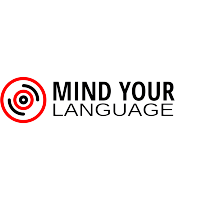Grammar 📒
Grammar is the system of a language. People sometimes describe grammar as the “rules” of a language; but in fact no language has rules*. If we use the word “rules”, we suggest that somebody created the rules first and then spoke the language, like a new game. But languages did not start like that. Languages started by people making sounds which evolved into words, phrases and sentences. No commonly-spoken language is fixed. All languages change over time. What we call “grammar” is simply a reflection of a language at a particular time.
Do we need to study grammar to learn a language? The short answer is “no”. Very many people in the world speak their own, native language without having studied its grammar. Children start to speak before they even know the word “grammar”. But if you are serious about learning a foreign language, the long answer is “yes, grammar can help you to learn a language more quickly and more efficiently.” It’s important to think of grammar as something that can help you, like a friend. When you understand the grammar (or system) of a language, you can understand many things yourself, without having to ask a teacher or look in a book.
So think of grammar as something good, something positive, something that you can use to find your way – like a signpost or a map.
*Except invented languages like Esperanto. And if Esperanto were widely spoken, its rules would soon be very different.
Grammar is the way we arrange words to make proper sentences. Word level grammar covers verbs and tenses, nouns, adverbs etc. Sentence level grammar covers phrases, clauses, reported speech, etc.
Word-level Grammar
9 Parts of Speech
These are the words that you use to make a sentence.Verbs and Verb Tenses
Action verbs, express what is happening (do, work). State verbs express a situation (be, have).
Nouns
Nouns represent people (teacher, Mary), places (town, Asia) and things (table, music).
Adjectives
An adjective is a word that tells us more about a noun (big, red, expensive).
Adverbs
Adverbs tell us more about verbs, adjectives or adverbs (loudly, really, extremely).Determiners
Determiners are words like the, an, this that start a noun phrase.
Prepositions
A preposition expresses the relationship of a noun or pronoun to another word (at, in, from).
Pronouns
Pronouns are small words like you, ours, some that can take the place of a noun.
Conjunctions
Conjunctions join two parts of a sentence (and, but, though).
Interjections
Short exclamations with no real grammatical value (ah, dear, er)




